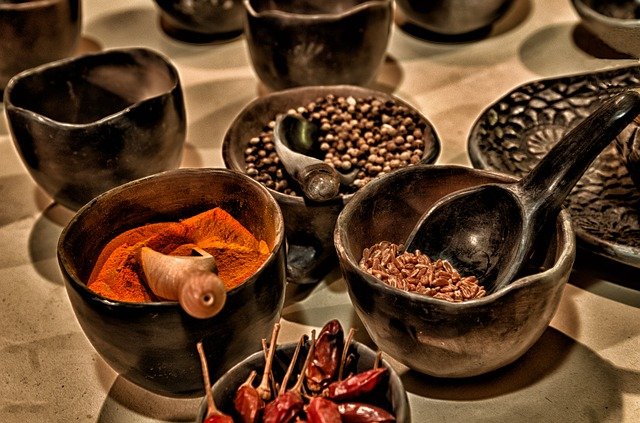Healthy Life Tips
1.How healthy are you?
2.Do you have a healthy diet?
3.Do you exercise regularly?
4.Do you drink at least eight glasses of water a day? Do you get enough sleep every day?
5.Do you live a healthy lifestyle?
Our bodies are temples, and we must care for them. Are you aware that more than 70% of Americans are obese or overweight? That’s crazy! Consider your body as a physical shell that will carry you through life. Your shell will quickly wear out if you constantly abuse it.
You don’t want to bog yourself down with unneeded health issues because life is beautiful. Your important organs may be functioning normally now, but they may not be tomorrow. Take care of yourself and don’t take your health for granted. Take good care of yourself.
Good health entails more than just eating well and exercising regularly; it also entails having a happy attitude, a positive self-image, and leading a healthy lifestyle. In this essay, I offer 45 suggestions for living a healthier lifestyle. This post is worth bookmarking and saving the tips for since they will help you live a healthy life.

1. Drink More Water.
The majority of us do not drink enough water on a daily basis. Our bodies require water to function properly. Do you aware that water makes up more than 60% of our bodies? Water is required for biological processes, waste removal, and the transport of nutrients and oxygen throughout our bodies. We need to replenish our water intake since we lose water every day through pee, bowel movements, perspiration, and breathing.
Furthermore, drinking water aids weight loss.
According to a study conducted by Health.com among overweight or obese persons, water drinkers lose 4.5 pounds more than a control group! The reason for this, according to the experts, is that drinking more water helps to fill your stomach, making you feel less hungry and less prone to overeat.

The amount of water we need depends on a number of factors, including humidity, physical activity, and weight, but on average, we need 2.7-3.7 liters each day. We need to drink about 2.0-3.0 liters of water, or about 8-10 glasses, because food contributes for roughly 20% of our fluid consumption (now you see why the 8 glasses advice exists!). If you’re well hydrated, your urine should be somewhat yellow. If it’s not light yellow or even orange, you’re not getting enough water. Chapped lips, a dry mouth, and infrequent urination are some of the other symptoms. Go get some water before you continue reading this post!
2.Get enough sleep.
When you don’t get enough sleep, you compensate by overeating. It’s usually junk food. You won’t need to nibble to stay awake if you get adequate sleep. In addition, lack of sleep causes rapid aging, which you do not desire! Read: Do You Have Insomnia? How to Have a Restful Night’s Sleep
3.Meditate.
Meditation relaxes the mind and soothes the soul. Don’t worry if you don’t know how to meditate.
4.Exercise.
Life is movement. Daily exercise has been demonstrated to have numerous health benefits, including increased longevity, decreased disease risk, increased bone density, and weight loss. Increase your physical activity. For short distances, walking is preferable to taking public transportation. Instead of taking the elevator, take the steps. Participate in an aerobics or dance class. Choose a sport that you enjoy.
5.Pick exercises that you enjoy.
If you appreciate a sport, you will naturally want to participate in it. Exercise isn’t about toiling away and pushing yourself; it’s about staying healthy while having fun. Adding variety to your routines will protect them from becoming monotonous. What are your favorite exercises, and how can you include them into your workout?

6.Work out different parts of your body.
Don’t limit yourself to cardio (like jogging). Make sure your body gets a good workout. The simplest method is to participate in sports, which work out various muscle groups. Trekking, hiking, swimming, basketball, tennis, squash, badminton, yoga, and frisbee are all popular ways to get a good body workout.
7.Eat fruits. Fruits have a load of vitamins and minerals.
Do you know that oranges contain more vitamin C than vitamin C pills? Consume your vitamins and minerals as much as possible through your meals rather than pills. Every morning, I consume a variety of fruits, which energize me. Banana, Papaya, Kiwi, Strawberries, Blueberries, Blackberries, Raspberries, Watermelon, Rockmelon, Honeydew, Peach, Apple, Grapefruit, Pomelo, Mango, Orange, Watermelon, Rockmelon, Honeydew, Peach, Apple, Grapefruit, Pomelo, Mango, Orange
8. Eat vegetables.
Many nutrients and minerals are found in vegetables, including folate, vitamin K, folate, vitamin A, manganese, and potassium, as well as dietary fiber, which is vital for gastrointestinal health. Vegetables are divided into two categories: Non-starchy veggies include kale, arugula, spinach, broccoli, brussels sprouts, long beans, tomato, cucumber, and mushroom; and starchy vegetables like potato, sweet potato, yam, and pumpkin (technically a fungus)
Because some vegetables are slightly starchy, they fall somewhere in the middle. Corn, green peas, carrots, artichokes, beets, cauliflower, and beans are some of the vegetables you can eat (technically legumes). All veggies are beneficial to our diet and enrich it. Every day for lunch, I eat raw salads with a variety of veggies, followed by a prepared meal with grains, potatoes/sweet potatoes, and other delectable vegetables. To enhance your immune system, you should consume a variety of vegetables.
9. Pick different-colored fruits/vegs.
Consume a wide array of fruits and vegetables of various hues on a regular basis. To begin, different colored fruits and vegetables have different anti-oxidant content, which removes free radicals that damage our cells and reduces inflammation in our bodies. Second, eating a wide variety of fruits and vegetables develops a diverse population of good bacteria in our gut, which acts as a powerful barrier between us and the environment, boosts our immune system, and enhances our long-term health.
White (Bananas), Yellow (Pineapples, Mango), Orange (Orange, Papaya), Red (Apple, Strawberries, Raspberries, Tomatoes, Watermelon), Green (Avocado, Kale, Lettuce, Cucumber), Purple/Blue (Avocado, Kale, Lettuce, Cucumber), Purple/Blue (Avocado, Kale, Lettuce, Cucumber) (Blackberries, Prunes). A complete list can be found under the color wheel.
If you already have stomach troubles, avoid consuming too much fiber because it might create digestion and constipation problems.As your stomach heals, eat low-fiber foods, juice your fruits and veggies to absorb their nutrients, and gradually increase your fruit and vegetable intake.
10.Cut down on processed food.
Processed food is not good because
The majority of the nutritious value of these meals is lost in the manufacturing process, and (b) the additional preservatives are harmful to human health. Salt is found in a lot of processed meals, which leads to high blood pressure and heart disease. In general, the more components (ending in ‘ite’ or ‘ate’) on a food label, the more processed it is. Choose fewer processed foods such as baked potatoes instead of chips, fresh fruit instead of canned fruit, and whole grains instead of white bread.
11.Choose intact grains over refined grains.
Intact grains have all of the vital elements of the grain seed; in other words, they have all of the original kernel, including the bran, germ, and endosperm. The grain has a higher nutritional profile of antioxidants, vitamins, and minerals than refined grains because these layers are intact (which are grains stripped of the bran and germ layers through processing).

Steel cut oats, barley, brown rice, quinoa, buckwheat, and millet are examples of intact grains. White rice, white flour, most forms of bread, white pasta, quick oats, and cereals are all refined grains. A grain’s refinement increases with the amount of processing it has undergone. If you’re just getting started, there’s no need to completely eliminate refined grains; balance is crucial. Switch to a more intact-grains-based diet by substituting intact grains for refined grains for 1-2 meals per week and gradually increasing it.
12.Love yourself.
Self-love is an essential component of living a happy and healthy life. When you have a bad self-image, it affects your mental well-being and health. On a scale of 1 to 10, how much do you love yourself? Why? How can you begin to love yourself more today? Read Day 13 of my Be a Better Me in 30 Days Program: Appreciate Yourself and How to Develop a Positive Body Image (series).
13.Avoid trigger foods.
Foods that make you go berserk and binge after eating them are known as trigger foods. Everyone’s trigger foods are different (mine used to be doughnuts, pastries, and chips), but candy bars, chocolate, confectionery, chips, cookies, or anything with a lot of refined sugar, salt, or flour are common trigger foods. These foods produce a blood sugar imbalance, which leads to overeating. What foods make you feel triggered? Recognize them and eliminate them from your diet.
14. Breathe Deeply.
Life is impossible without oxygen. You may be able to breathe, but are you doing so correctly? We don’t breathe properly because we take short breaths and only use 1/3 of our lung capacity. To achieve their optimum performance, athletes are taught optimal breathing techniques. When you take a full breath, your lungs are entirely filled, your abdomen expands, and your shoulders move very little.
reference – healthline ,mayoclinichealthsystem
adoptinghealthy- Healthy Life Tips,Healthy Life Tips for human,Healthy Life Tips besti

